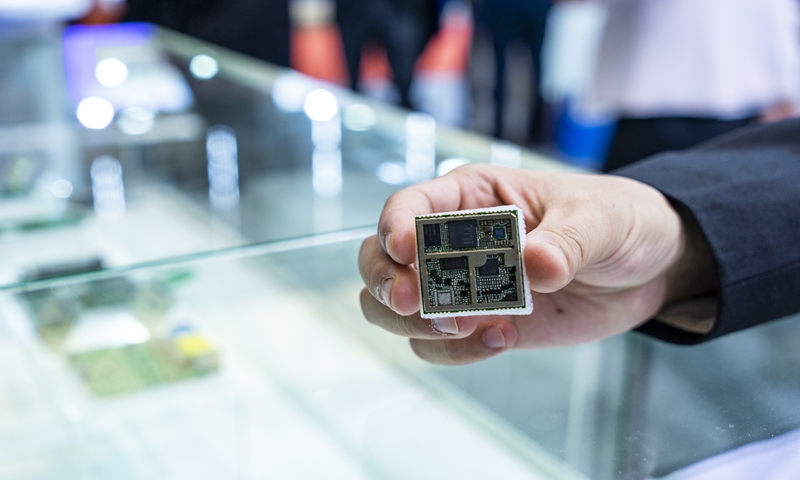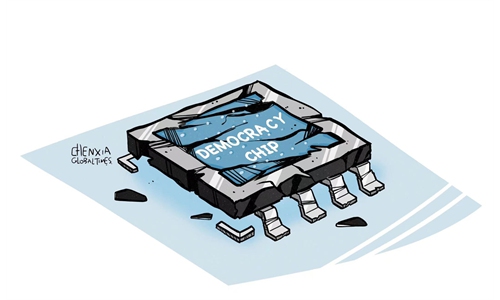
An employee showcases a semiconductor integrated circuit at an industry expo. Photo: VCG
Shenzhen in South China's Guangdong Province and Shanghai plan to encourage domestic enterprises and research institutions to use domestically developed electronic design automation (EDA) tools, with government subsidies of up to 10 million yuan ($1.39 million), as the country aims for core technology breakthroughs and replacement in the sector amid the US' decoupling push.
EDA is a type of electronic computer-aided design tool that is vital for the production of next-generation artificial intelligence chips.
Shenzhen will grant subsidies worth no more than 70 percent of the expenditure to enterprises and research institutions that buy domestically made EDA tools, with as much as 10 million yuan a year, according to a document addressing the high-quality development of the city's semiconductor industry that is open for public comment until November 8.
Subsidies of no more than 50 percent of the expenditure will be given to enterprises and institutions that rent such EDA equipment, with no more than 5 million yuan a year, the document said.
The document also calls for promoting the localization of the whole manufacturing process for EDA tools used for analog, digital and radio-frequency ICs, while vowing support for the research and development of next-generation EDA tools.
Shanghai in December 2021 announced similar policy measures, offering subsidies worth no more than 50 percent of the expenditure for IC enterprises and innovation platforms that buy home-developed EDAs.
In addition, Shanghai is encouraging companies to conduct testing of self-developed IC equipment, materials and EDAs, providing subsidies worth no more than 50 percent of their insurance premiums.
The two cities' moves came as China strives for core technological breakthroughs in the semiconductor sector and accelerates domestic replacement amid the US' continuous push for "tech decoupling."
In August, the US Department of Commerce issued a new rule that imposes restrictions on the export of four technologies, including EDA.
According to CCID Consulting, the Chinese market has long been dominated by foreign EDA suppliers, including US firms Synopsys and Cadence and Germany-based Siemens. The three multinationals account for a combined market share of 77 percent in China.
With a surge in demand for domestically made EDAs, local enterprises have seen rapid development.
Domestic leading EDA operator and solutions provider Empyrean Technology has told shareholders that it aims to fill the EDA gap and accelerate EDA localization to support the sustainable growth of China's semiconductor industry.
Global Times



